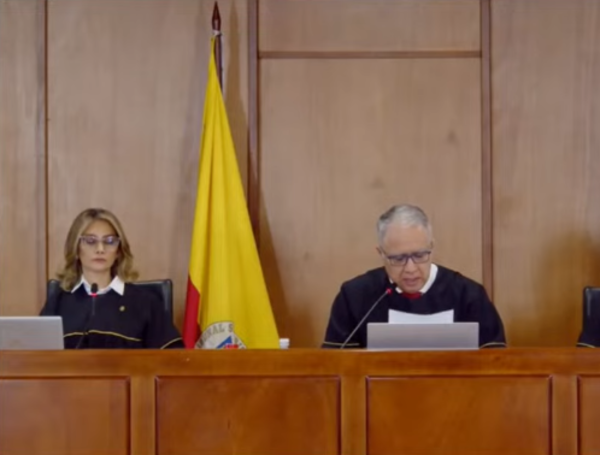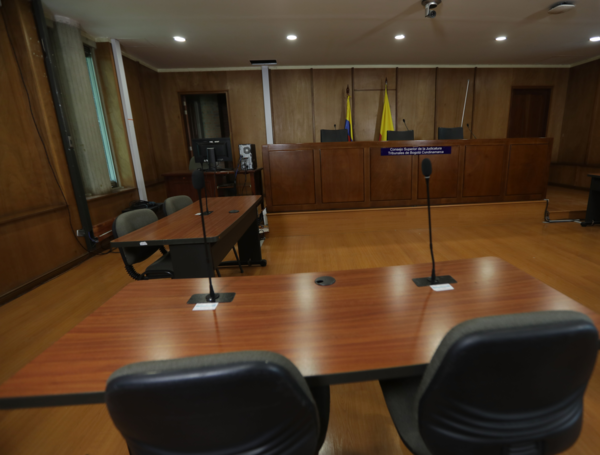Two days before the statute of limitations expired in the criminal proceedings against former President Álvaro Uribe, who was sentenced in the first instance to 12 years of house arrest for bribery in criminal proceedings and procedural fraud, the Bogotá Court announced that it has made a decision on the appeal filed by his defense. To announce the decision, it has summoned the parties for this Tuesday, October 21, when it will reveal whether it will revoke, modify, or maintain the 12-year house arrest sentence imposed on the former president.
The hearing began at 8:02 a.m., and although the judges attended in person in one of the courtrooms, the parties attended virtually. The case was handled by Judges Manuel Antonio Merchán (reporter), Alexandra Ossa, and Leonor Oviedo.
They analyzed the sentence of Judge Sandra Liliana Heredia, who in 1,114 pages on August 1 declared that Uribe committed bribery of witnesses and procedural fraud by offering bribes, through his lawyer Diego Cadena, to prisoners who years before had linked him to the creation of the AUC's 'Metro' bloc. According to the judge, Prosecutor Marlenne Orjuela proved that with these offers to convicts like Juan Guillermo Monsalve and Carlos Enrique Vélez, the former president intended for them to retract their statements.

For the Court, the statute of limitations has not expired, as the Criminal Chamber addressed this case on October 10th and issued a decision. Judge Merchán also emphasized that the hearing will focus on three issues: the requests for annulment filed by the defense, the exclusions it requested, and finally, whether or not Álvaro Uribe is guilty.
It is already expected that whatever the decision of the court, the affected party will file the extraordinary appeal for cassation before the Supreme Court, which from its Criminal Chamber will have to analyze whether to accept it or not.
Exclusion of evidence
According to Merchán,"the intercepted conversations are the result of an illegal interception. The Prosecutor's Office did not prove a lawful alternative route that would lead to the evidence, so the doctrine of inevitable discovery and finding in plain sight are inapplicable. The recordings will be excluded."

Bogotá Court. Photo: Mauricio Moreno/El Tiempo

